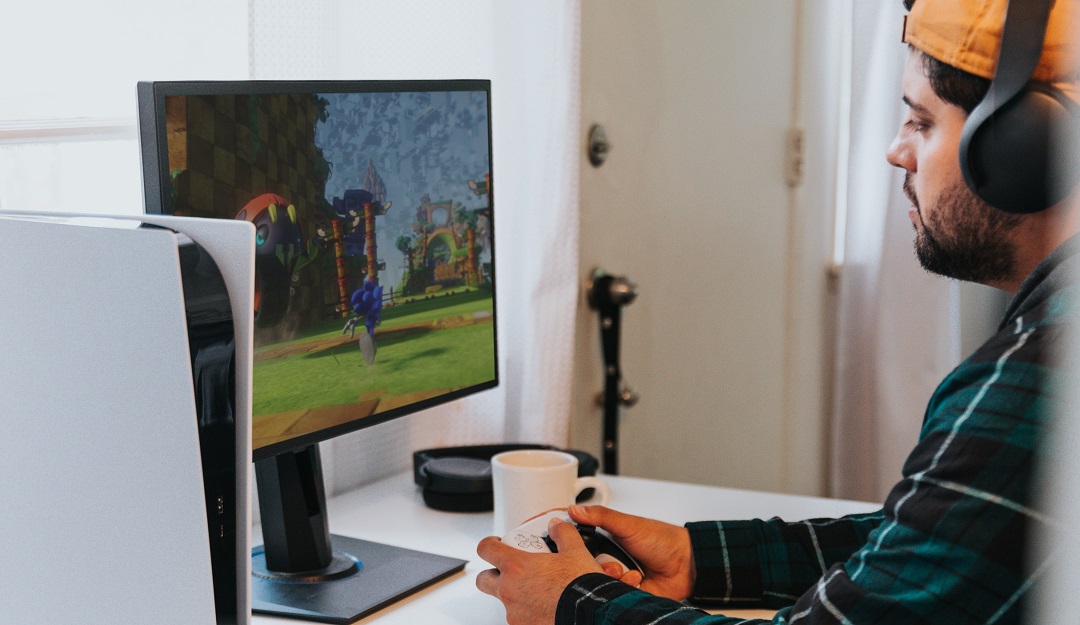
Virtual Private Networks (VPNs) have somehow found a valuable niche in the gaming community. VPNs are known to provide privacy and security for internet users. And for many gamers, the layer of security this technology provides is enough for them to search and install the best gaming VPN that suits their preferences.
However, not all gamers are convinced that getting a VPN is necessary. This is because not having a VPN won't prevent them from enjoying their games from a technical standpoint. Nevertheless, getting a VPN can provide you with several benefits, many of which cater to your online safety. But before we can dive into the reasons why you need a VPN, let's first talk about what a VPN is and how it works to get a better understanding of this technology.
What Exactly Is a VPN?
A VPN is designed to establish a secure and encrypted connection over the internet. It safeguards your data and online activities from prying eyes so you can explore the world wide web with peace of mind. It does this by routing your device's internet connection through a private server instead of the user's regular ISP. Any data that's transmitted to the internet is redirected to the VPN, not to the user's device. This allows users to keep their IP address hidden and their private information secure.
With that said, integrating a VPN into your gaming setup can unlock a range of advantages. Whether you're a casual player or an eSports enthusiast, here are six benefits you'll receive when you use a VPN:
1. Protection Against DDoS Attacks
Distributed Denial of Service (DDoS) attacks are every gamer's nightmare because they overload your network connection and cause severe lag. It's difficult to enjoy gaming online if nothing in the game loads properly. But if you're using a VPN, you can shield your real IP address and route your gaming traffic through secure servers. This way, it'll be harder for attackers to pinpoint your actual location and launch DDoS assaults.
2. Protection Against Swatting and Doxxing
Swatting and doxxing are serious threats that gamers face in online environments. Swatting involves maliciously reporting false emergencies at a gamer's physical location, often leading to a SWAT team response. Doxxing, on the other hand, refers to the act of publicly revealing a gamer's personal information. To protect your real IP address, you can use a VPN to buff up your online security measures. This technology will make it more challenging for malicious individuals to obtain your location information, safeguarding you against swatting attempts and doxxing attacks.
3. Shielding from Malicious Players and Hackers
The gaming world is not immune to malicious players and hackers seeking to exploit vulnerabilities or engage in cheating, so having a VPN can give you that extra layer of protection to safeguard your gaming traffic. VPNs make it harder for hackers to intercept or manipulate your data, ensuring fair gameplay and protecting you from falling victim to malicious activities within the gaming community.
4. Securing Online Gaming Transactions
A lot of online games allow their players to make online transactions so that they can purchase in-game items, subscribe to their gaming services, or participate in virtual economies. These transactions contain sensitive personal and financial information, and if they aren't aptly protected, they can be attractive targets for cybercriminals. By using a VPN, you add an extra layer of encryption to your online gaming transactions. This shields your financial data from potential hackers, ensuring that your payments and personal information remain secure and protected.
5. Reduced Latency and Ping Times
As a gamer, you know that having low latency and minimal ping times are crucial for a smooth and responsive gameplay experience. But if your internet connection isn't great, your game might not even load. Apart from a slow internet connection, bandwidth throttling, which involves some ISPs deliberately slowing down certain types of internet traffic, can also result in frustrating lag and poor gaming performance. Fortunately, with a VPN, you'll be able to work around these issues.
With a VPN, you can connect to a VPN that's closer to the game server's location, potentially reducing the distance your data needs to travel. VPN can also bypass bandwidth throttling imposed by your ISP by sending your traffic through an encrypted tunnel. This can result in lower latency and improved ping times, allowing you to react faster in competitive games and enjoy a more fluid gaming experience overall.
6. Access to Geo-Restricted Games
There are a lot of online games that are geo-restricted so it can be frustrating to discover that a game you've been eagerly anticipating won't be available in your region. But if you have a VPN, you can connect to a VPN server in a region where the game is available and make it appear as if you're accessing the internet from that location. As such, you'll gain the freedom to play and explore a wide variety of geo-restricted games.
Conclusion
A gaming VPN doesn't only provide you with an additional layer of protection against cyber threats, but it also opens up a world of gaming opportunities by providing seamless connectivity. It allows you to game with confidence, knowing that your personal information is secure and your gaming sessions are optimized for the best possible performance. As you venture into the gaming realm, consider investing in a reliable VPN service that suits your needs.
Share this post
Leave a comment
All comments are moderated. Spammy and bot submitted comments are deleted. Please submit the comments that are helpful to others, and we'll approve your comments. A comment that includes outbound link will only be approved if the content is relevant to the topic, and has some value to our readers.

Comments (0)
No comment